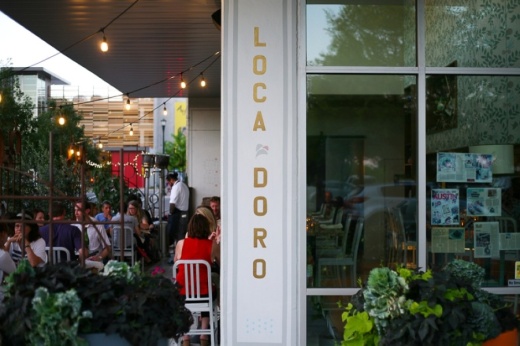The order was an outcome L'Oca D'Oro co-owner Adam Orman had worried about throughout May as restaurants around the state were allowed to open dining rooms—first to 25% capacity and eventually to 75%.
L'Oca D'Oro decided to take a slower approach, first offering some curbside and takeout orders, then focusing on preparing meals for Austin ISD students through a program funded by the city of Austin. The East Austin Italian restaurant never opened its dining room.
"We knew opening and closing was not something we were financially or emotionally prepared for," Orman said.
When he questioned the decision to be cautious, Orman said chef and co-owner Fiore Tedesco reminded him of the stakes.
"If we're wrong, it means we opened too slowly. If we're right, it means we keep people from getting sick," Tedesco told Orman.
Michael Covey, managing director at Juniper and Uncle Nicky's, took a similar approach, self-imposing a 25% restriction despite the legal allowance to open to 75% capacity.
"What we don't want is a yo-yo effect. Not only is it tough logistics wise, it's tough mentally and emotionally for our staff and our customers," Covey said.
A group of dozens of Austin restaurants have joined Uncle Nicky's, Juniper and L'Oca D'Oro in a group called Good Work Austin—signing a reopening agreement, self-imposing restrictions and going above and beyond the state-imposed safety measures.
The businesses that have signed on have different service models. Some are fine-dining restaurants; some are counter-service spots. Some have opened their dining room in limited capacities; others are still only open for takeout and to-go orders. But all have agreed to the restrictions to protect staff, protect customers and hopefully protect their businesses from another closure that they said would be devastating.
The agreement, signed by 43 Austin restaurants and small businesses as of June 26, includes 15 points ranging from requiring staff and customer to wear masks to adding an employee wellness charge to bills that provides employees with access to health care and paid sick leave.
Jodi Mazeika, the business team leader at Black Star Co-Op, said the team was initially planning to slowly start opening the dining room, but after seeing the spike in cases they held off. Making the best decisions as the situation changes day to day is a challenge, Mazeika said, but teaming up with other business owners in the same situation has provided at least some solace.
"It’s a huge struggle right now and nobody has any answers," she said. "It still just feels so up in the air. We don’t know if this is going to last a couple months or another year."
Restaurants take on some of the mandates, agreeing to a process when a staff member tests positive or shows symptoms and mandating sanitation practices. But the customers also assume responsibility at restaurants that have signed the agreement: agreeing to a set of standards that includes providing their name, completing a health declaration and wearing a mask.
Orman said it is that cooperative effort that the community will need to get through this pandemic.
"Guests understand we need to restart the economy, but we can't risk where we are right now," he said.





